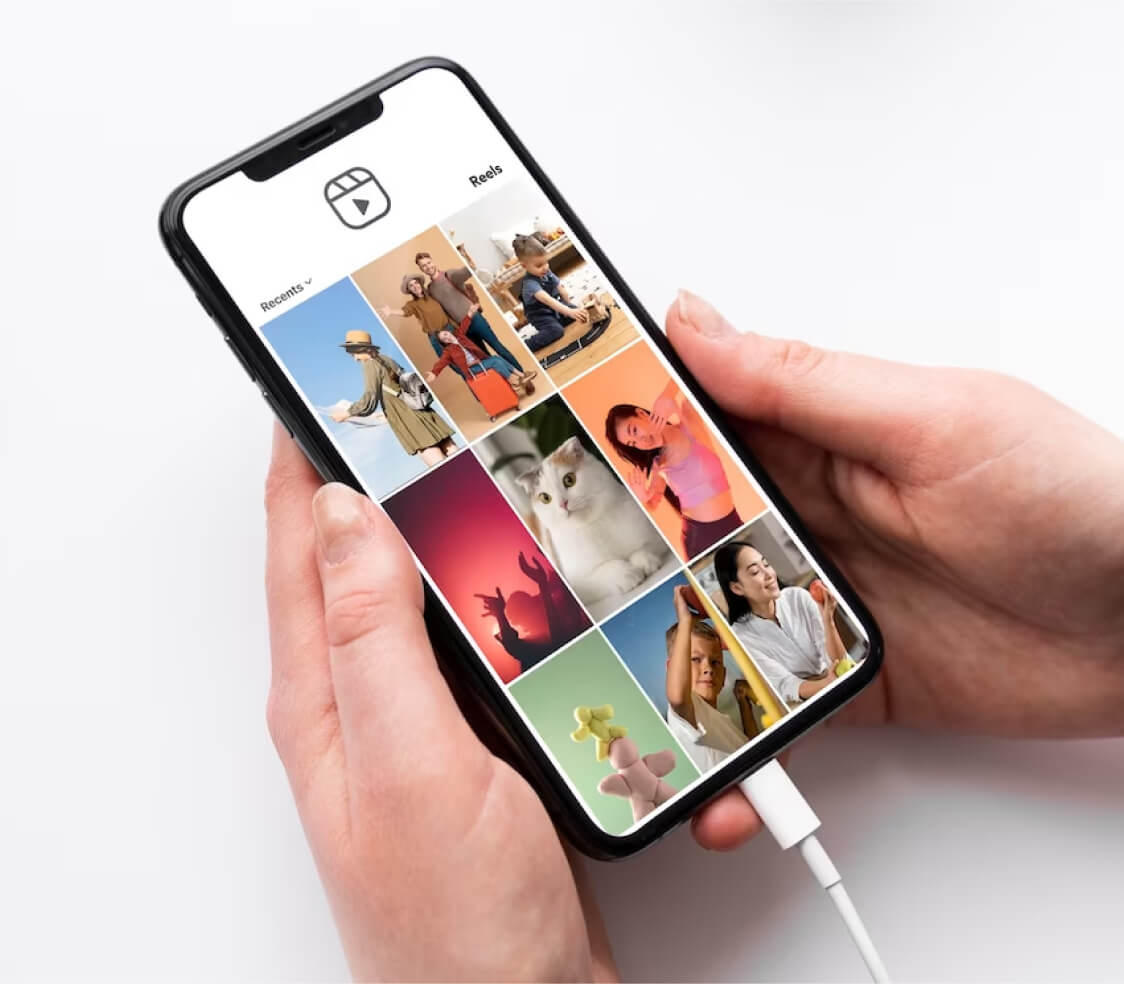Earn Online, Writing: Chapter 1 – How to Start
Ready to earn online? Chapter 1 of our writing guide offers crucial insights and strategies to help you start your journey toward financial freedom.
Picture this: earning in dollars, all from the comfort of your smartphone. No more commuting, no more 9-to-5 grind, and no more worrying about unemployment. Imagine having the freedom to work from anywhere—whether it's your favorite coffee shop, a sunny beach, or even from the couch at home. And here's the best part: not only can you earn, but you could even create opportunities for others along the way. You can help others build their own paths to success. It may sound like something out of a dream, but I’m here to tell you—it’s totally possible.
The reality is, anyone can make this work, but it takes more than just having the right technology. Sure, having a laptop or a smartphone with internet access is a great start, but the true key to success lies in your mindset and the qualities you cultivate along the way. You need the right virtues to guide you through the challenges and keep you on track. And if you want to succeed in the world of online writing, these virtues are non-negotiable.
First and foremost, passion is your driving force. It's the thing that will keep you motivated even when the journey gets tough. Passion is the fuel that lights the fire, the reason you want to write and share your ideas with the world. It’s what gets you excited about your work and pushes you to keep going even when obstacles arise. Without passion, it’s easy to give up when the going gets tough.
Next comes patience. In a world where instant gratification is often just a click away, patience might feel like a rare virtue. But let me tell you, patience is absolutely essential in the online writing world. Real success, especially when it comes to building an audience and a brand, doesn’t happen overnight. It takes time, persistence, and small, consistent efforts. You might not see the results you want immediately, but that doesn’t mean you won’t get there eventually. In fact, the longer you stick with it, the more you’ll grow.
But patience alone won’t be enough. You’ll need to combine it with hard work and focus. The world of online writing is competitive, and while patience helps you stay the course, hard work is what pushes you through the obstacles. You have to be dedicated and willing to put in the time to learn, grow, and improve. Focus is just as important—you can’t afford to get distracted by shiny new ideas or opportunities that don’t align with your goals. Focus on your mission and the process, and you’ll start to see progress.
And finally, embracing failure is one of the most important things you’ll do in this journey. No one gets it right every time, and setbacks will happen—it’s part of the process. But here’s the secret: failing isn’t the end of the road, it’s a chance to learn and grow. You’ll make mistakes, you’ll face challenges, but if you keep going and learn from each experience, you’ll keep moving forward. It’s that persistence and ability to rise after failure that ultimately leads to success.
So, now that you’ve got the mindset and virtues in place, let’s talk about turning your ideas into something real. You need a solid foundation to guide your path. The best way to do that is by breaking your journey down into four key elements: vision, mission, goals, and objectives. Each one is a crucial step in the process of turning your writing dreams into a thriving reality.
Let’s take a closer look at these elements next.
A) Vision:
Your vision is the heartbeat of your journey—the reason behind everything you’re doing. It’s your "why." Why do you want to write? What problem are you trying to solve? What impact do you want to make in the world? A vision isn’t just a vague idea; it’s a clear, compelling statement about the change you want to see. Think of it as the guiding star that will direct all of your efforts.
For me, my vision is about connecting with my community through reliable information presented in a way that speaks to them—whether it’s in English, Swahili, or Sheng. Sheng, especially, is a language full of vibrant slang that resonates with Gen Z. It’s a way to break through the noise and truly engage with a generation that often feels misunderstood. By providing content in a way that’s both authentic and relevant to them, I aim to empower my audience to make informed decisions. It’s not just about sharing information; it’s about giving them the tools they need to navigate the world with confidence.
B) Mission:
Now, the mission is the "how" behind your vision. It’s the plan, the actions, and the steps you’ll take to turn your big-picture dream into reality. While your vision might be the destination, your mission is the journey—the day-to-day work that moves you forward. Your mission gives you direction and helps you stay focused on the goal.
For me, my mission is simple: I want to create informative, reliable content that resonates with my audience. But what makes it unique is the language I use. I write in Sheng, a mix of English and Swahili that feels personal and relatable. And to keep things engaging and modern, I throw in some emojis to make it feel more conversational and fun. My mission is about speaking my audience’s language—literally and figuratively—so they feel connected and empowered. It's not just about delivering information; it's about making that information accessible and enjoyable. By sticking to this mission, I can ensure my content always meets the needs of my audience and aligns with my vision.
So, when you're thinking about your own mission, ask yourself: What actions will help you fulfill your vision? What steps do you need to take to make your ideas come to life? It’s all about making your vision a tangible reality, one piece of content at a time.
C) Goal:
Your goal is all about the impact you want to create. It’s the lasting impression you hope to leave on your audience. What do you want people to walk away with after engaging with your work? This is where you think about the change you want to see, the transformation you want to inspire.
For me, the goal is to make slang a tool that helps people access relevant information. Slang isn’t just playful language—it’s a way for people to connect, communicate, and understand the world in a way that feels natural and authentic to them. By using slang to convey meaningful content, I aim to help people feel more informed, engaged, and empowered, speaking directly to their world. When people read my work, I want them to feel like the information isn’t just useful, but it’s delivered in a way that truly resonates with their culture and experience.
D) Objectives:
Your objectives are the results you expect to see—the tangible outcomes that reflect whether you’re achieving your vision and mission. These are the markers of success that you can measure along the way.
In my case, my objectives are clear: I want to build a community of readers who feel connected to the content and to each other. I want to inspire others to be creative with language, to use it in ways that reflect their identity and culture. And, ultimately, I want to contribute to the ongoing evolution of slang culture—helping it become more than just a trend, but a legitimate way for people to communicate and access knowledge. These objectives are my way of measuring success and making sure that the work I’m doing aligns with my larger goals.
Before you jump into your writing journey, it’s important to define these key elements clearly. Take the time to reflect on your vision, mission, goal, and objectives—this foundation will guide you as you move forward.
The next step? Choosing a niche. Your niche is your specific theme or category of focus for your writing. It could be anything you’re passionate about—whether it’s health, technology, travel, personal development, or something else entirely. In my case, my niche is a general personal blog, but yours can be whatever excites you the most. Your niche will help you refine your focus and guide you in choosing the right name for your project, which is something we’ll dive into in the next chapter.
Starting your online writing journey is an exciting and rewarding adventure. With the right mindset, a solid vision, and a clear plan in place, you’ll be on your way to creating a platform that not only generates income but also makes a real difference in the lives of your audience. Let’s get started!
E) Values:
Your values are the guiding principles that shape everything you do. They’re the beliefs that influence your decisions, your actions, and the way you connect with your audience. These values are crucial because they help you stay authentic and aligned with your mission, no matter what challenges you face along the way.
For me, my core values revolve around authenticity, community, and empowerment. I believe in staying true to my voice and creating content that is genuine, relatable, and meaningful. I also value the importance of community—building a space where people feel heard, supported, and encouraged to share their thoughts and ideas. Finally, I want to empower my audience by giving them the tools and knowledge to make informed decisions, creating a sense of confidence in everything they do.
Your values will be the foundation of your content and interactions with your audience. By staying true to your values, you’ll build trust and credibility with your readers, creating a loyal community that believes in what you stand for.
F) Slogan:
Your slogan is the simple, catchy phrase that sums up what you’re all about. It’s a short, memorable way to communicate your mission and vision in just a few words. Think of it as your brand’s signature, something that instantly tells people who you are and what you do.
For me, my slogan might be something like, “Slang that speaks, knowledge that empowers.” This encapsulates the idea of using language in a way that feels familiar and relevant to my audience while also providing them with valuable, empowering information. Your slogan should reflect your values and your goal—it should be a reminder of the impact you want to make, while being simple enough to stick in people’s minds.
When creating your slogan, think about what makes your approach unique, what sets you apart from the rest. What message do you want to leave with your audience every time they hear your name? Your slogan should embody that message in a fun and engaging way, so people remember it and are drawn to your platform.
G) Impact:
Your impact is the lasting difference you want to make through your work. It’s the change, transformation, or effect that results from your content and actions. Impact goes beyond just gaining followers or making money—it’s about influencing lives, sparking change, and creating value that matters.
For me, the impact I want to create is twofold. First, I want to inform and educate my audience in a way that empowers them to make better decisions and live more confidently in their everyday lives. Whether it's about using slang in an informed way or offering perspectives that resonate with their unique experiences, I want my content to be a trusted resource. Second, I want to inspire others to use language creatively, to see the potential in slang as a tool for empowerment, not just for casual communication. My ultimate goal is to make a difference in how people engage with language and information in a digital world.
Your impact is also how you’ll measure success in the long term. It’s about asking yourself: “How has my content changed the way my audience thinks, feels, or acts?” Focusing on creating a meaningful impact rather than chasing numbers will keep you motivated and ensure your work leaves a lasting legacy.
H) Brand Identity:
Your brand identity is how you present yourself to the world. It’s the combination of your visual elements (like colors, fonts, and logo) and your tone of voice that make you recognizable and relatable. Your brand identity should reflect your values and resonate with your audience on a deeper level.
For example, if your mission is to make learning fun and engaging, your brand might use bright colors, playful fonts, and a casual, approachable tone. If you’re providing serious, informative content, your brand might lean towards more professional, sleek designs with a confident, knowledgeable tone.
Building a strong brand identity ensures that your audience knows who you are and what you stand for. It’s about creating a connection beyond just the content—people should recognize your work at a glance and feel like they can trust you because your brand is consistent, authentic, and aligned with your vision.
I) Audience:
Understanding your audience is crucial. They’re the ones who will engage with your content, share it, and build the community around your brand. Know who you’re writing for and what problems they face. What are their struggles, desires, and needs? How can you speak to them in a way that feels relevant and personal?
In my case, my audience is Gen Z, young people who communicate in vibrant, evolving slang. They’re tech-savvy, socially conscious, and always seeking information that resonates with their experiences. Knowing this helps me tailor my content in a way that appeals to them—not just in terms of language, but also in the kind of topics and tone that will keep them engaged.
Your audience will guide your writing style, content choices, and even the way you engage with them. Be sure to regularly interact with your audience to keep track of their changing needs and ensure your content is always valuable and relevant.
J) Brand Promise:
Your brand promise is the commitment you make to your audience. It’s what they can expect from you every time they engage with your content. It should be clear, consistent, and aligned with your values and goals.
For instance, my brand promise might be, “Every piece of content you read will empower you with knowledge in a way that speaks to your world.” This lets my audience know that when they read my work, they can expect something that’s not only informative but also relatable and inspiring.
Your brand promise helps build trust, as your audience knows exactly what to expect from your content, and it keeps you accountable to them. Be sure to deliver on your promise consistently to keep your audience engaged and loyal.
With these elements—values, slogan, impact, brand identity, audience, and brand promise—you’re setting the foundation for a clear and purposeful writing journey. These guiding principles will shape the way you approach your work, connect with your readers, and measure your success. It’s not just about writing; it’s about building something meaningful that will resonate with your audience and leave a lasting impact.
Alama::

Johnson Githuku
As the Founder and CEO of PhrasePhantoms.co.ke, my mission is to empower individuals to become their own bosses through knowledge and minimal resources. I bring extensive expertise in web development, web analytics, digital marketing, startup development, and netpreneurship to help you achieve success in the digital landscape.




.png?locale=sw)

0 Comments